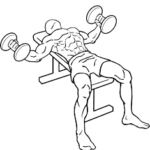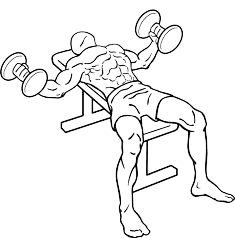Movement infection, a confusing peculiarity about motion sickness hand paralysis, keeps on perplexing numerous people during different methods of transportation, be it vehicle rides, boat outings, or flights. While the run of the mill side effects of queasiness and distress are broadly perceived, a less-investigated feature that has as of late acquired consideration is the likely association between movement infection and hand loss of motion. In this broad assessment, we leave on an excursion to disentangle the many-sided subtleties of this relationship and give a careful investigation of different relevant inquiries.
Does movement infection make your hands shiver?
inquiring motion sickness hand paralysis , One of the inquisitive and less-talked about side effects announced by certain people wrestling with movement ailment is the impression of shivering or deadness in their grasp. While this peculiarity isn’t all around encountered, its irregular event brings up charming issues about the convergence between movement infection and fringe tangible encounters. Specialists are effectively exploring this perspective to unravel the fundamental systems that might interface movement infection and hand shivering.

Translating the Job of the Compulsory Sensory system
Movement disorder is proposed to result from an unsettling influence in the body’s unpredictable equilibrium managing framework, with the inward ear filling in as a key part. The autonomic sensory system, liable for controlling compulsory physical processes, is complicatedly associated with this interaction. Prescriptions intended to go about as blockers for movement ailment regularly focus on this framework, frequently as allergy meds. Be that as it may, the possible repercussions of these drugs on side effects like hand loss of motion require a more nuanced assessment, underscoring the requirement for proceeded with research about motion sickness hand paralysis.
Is movement infection a neurological problem?
While movement infection itself isn’t named a neurological problem, its indication includes complex cooperation between tactile organs and the sensory system. The internal ear, a urgent player in distinguishing movement, conveys messages to the cerebrum that can set off a fountain of side effects, including sickness. The possible association between movement affliction and neurological issues, like hand loss of motion, stays a functioning and fruitful area of exploration about motion sickness hand paralysis. An upgraded comprehension of these connections holds guarantee for the advancement of designated intercessions and medicines.

Exploring the Huge Oceans of Solutions for Nausea
Tending to movement infection frequently requires a multi-pronged methodology. Non-prescription meds, wristbands intended to apply designated pressure, and taking on rehearses like zeroing in not too far off are normally utilized cures. Notwithstanding, when movement infection is combined with abnormal side effects like hand loss of motion or shivering, it is central to look for proficient clinical counsel. Viable cures rely on a careful comprehension of the underlying drivers, highlighting the significance of a customized and extensive way to deal with treatment of motion sickness hand paralysis.
The Exploration Boondocks: Diving Further into Movement Disorder Hand Loss of motion Association
As our aggregate comprehension of movement ailment and its likely connections to hand loss of motion keeps on developing, analysts are effectively investigating unfamiliar regions. Examinations concerning individual varieties in reactions to movement, the effect of meds on fringe sensations, and potential long haul impacts address key roads for forming nuanced bits of knowledge into this perplexing relationship between motion sickness hand paralysis.
Factors Affecting the Connection Between motion sickness hand paralysis
motion sickness hand paralysis, while apparently irrelevant, share a complicated relationship that is impacted by different variables. Understanding these variables can reveal insight into why a few people experience hand loss of motion related to movement disorder.
- Individual Inconstancy:
Hereditary Inclination: Exploration proposes that hereditary variables might add to a singular’s vulnerability to movement affliction. Hereditary varieties in how the body processes tactile data and answers movement could assume a part in the event of hand loss of motion at times. - Neurological Pathways:
Internal Ear Signals: The internal ear, a vital participant moving identification, conveys messages to the mind that add to the improvement of movement infection. Disturbances in these signs could prompt sickness as well as effect neurological pathways associated with hand capability, possibly bringing about loss of motion. - Autonomic Sensory system Reaction:
Prescription Effect: Drugs usually used to ease movement affliction frequently focus on the autonomic sensory system. The fragile equilibrium in controlling this framework can affect movement affliction side effects as well as fringe sensations, including the event of hand loss of motion. - Fringe Tactile Incorporation:
Shivering Sensations: Reports of shivering or deadness in the hands during movement disorder recommend a likely transaction between fringe tangible signs and the body’s reaction to movement. Understanding how motion sickness hand paralysis are coordinated and handled by the sensory system is urgent in unwinding the association. - Mental Elements:
Nervousness and Stress: Mental variables, like tension or stress, can compound both movement affliction and fringe side effects. The mind’s reaction to stress might impact the sign of hand loss of motion in people inclined to uplifted responses during movement. - Movement Power and Span:
Seriousness of Movement: The power and span of movement openness assume a critical part. Drawn out or serious movement could heighten both movement disorder side effects and the probability of encountering related hand loss of motion. - Previous Ailments:
Neurological Circumstances: People with prior neurological circumstances might be more vulnerable to both movement ailment and hand loss of motion. Understanding the collaboration between these circumstances can give significant bits of knowledge into the connection between the two peculiarities.

All in all, the convergence between motion sickness hand paralysis is an enchanting wilderness that coaxes further investigation. As how we might interpret the complexities of these peculiarities extends, so does our capacity to foster designated intercessions and give compelling arrangements. For people encountering movement disorder joined by surprising side effects like hand loss of motion, looking for proficient clinical exhortation is principal for a careful assessment and customized direction







